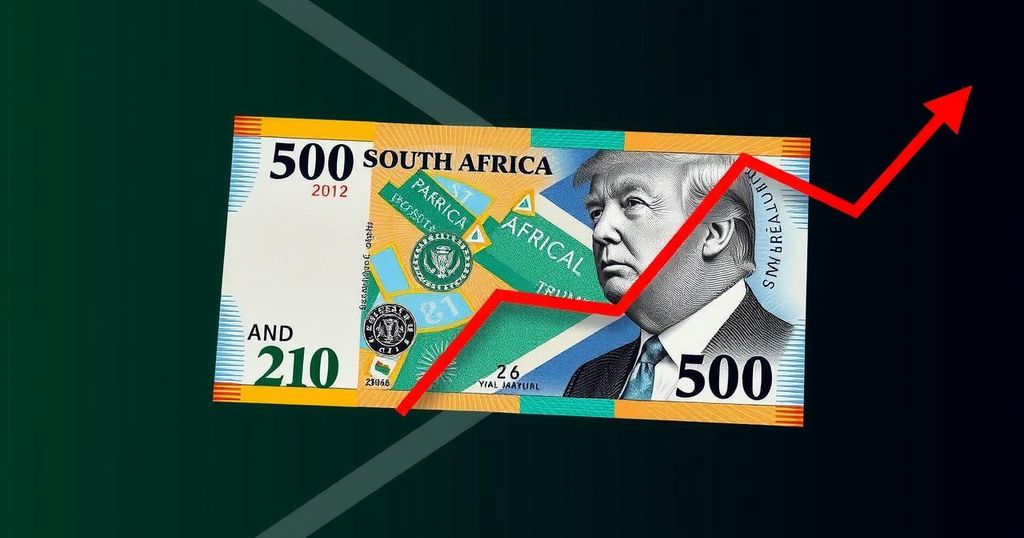The South African rand fell to R17.81 per dollar, declining by 3% as Trump’s potential return to the presidency triggered investor anxiety about geopolitical risks and tariffs. The rise in South Africa’s bond yields reflects deteriorating investor sentiment, raising concerns over economic impacts, specifically on jobs supported by the AGOA.
On Wednesday, the South African rand experienced a substantial decline, falling to R17.81 against the US dollar, equivalent to a 3% drop. This depreciation is attributed to heightened global investor anxiety concerning Donald Trump’s anticipated return to the White House. As risk aversion increases, emerging markets are facing significant pressure from rising geopolitical uncertainties and the expectation of new tariffs from the United States. Reflecting this sentiment, the yield on South Africa’s 10-year government bonds surged by over 30 basis points, reaching 9.66%. The prospect of a second Trump presidency raises concerns regarding its potential repercussions for South Africa’s economy, especially the risk of undermining the African Growth and Opportunity Act (AGOA), a pivotal program that supports approximately 13,000 jobs in South Africa. Trump’s tariff policies could further impair South Africa’s export capabilities both to the US and on a global scale due to possible adverse effects on international trade.
The South African rand’s decline is emblematic of wider concerns within emerging markets, especially in light of potential changes in US trade policy that may accompany a renewed Trump administration. The AGOA, established to facilitate trade by granting preferential access to the US market for eligible Sub-Saharan African countries, plays a critical role in South Africa’s economic framework. With fears of increased tariffs and trade uncertainties looming, investor sentiment is understandably cautious, prompting shifts in financial markets and government bond yields.
In summary, the recent sharp decline of the South African rand against the US dollar underscores growing investor concerns linked to Donald Trump’s forthcoming presidency. The adverse effects on the economy, particularly regarding the AGOA and potential tariff implications, illustrate the interconnectedness of global trade dynamics and domestic economic health.
Original Source: www.africa.com







